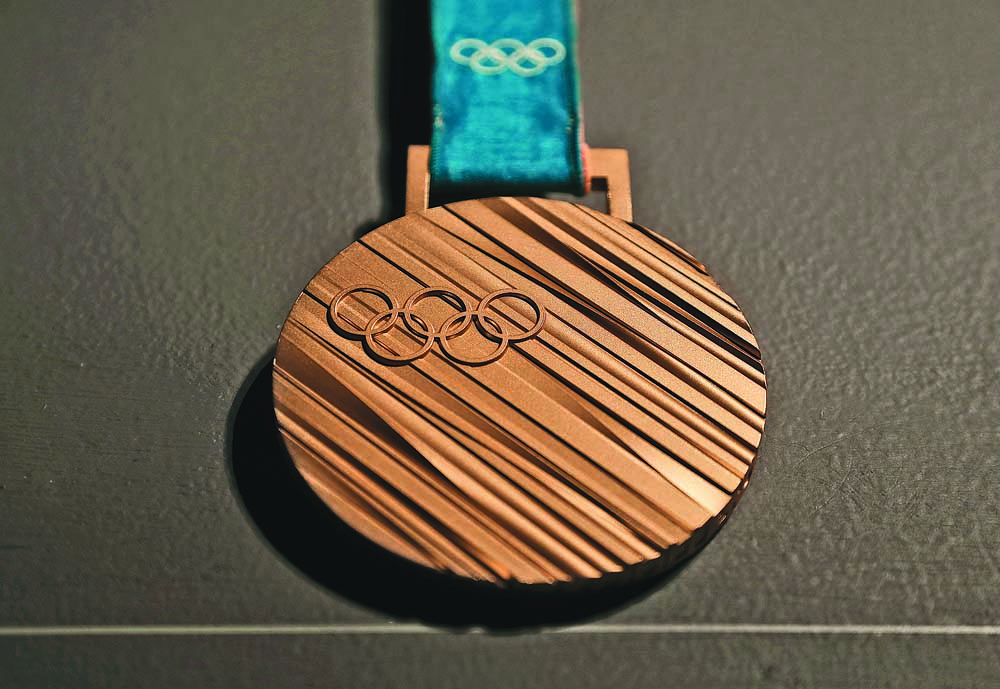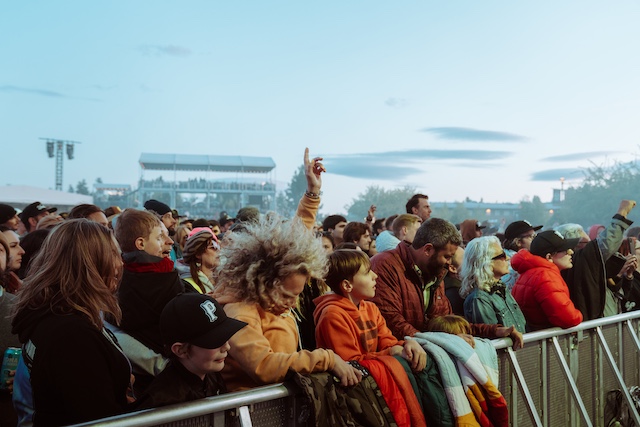A glimpse at life as a North Korean Olympic athlete
Published 11:28 pm Thursday, February 8, 2018

- Julie Jacobson
TOKYO — The arrival of 22 athletes from North Korea to compete in the Winter Olympics in Pyeongchang, South Korea, has been greeted by a predictable news media scrum, with journalists scrambling to coax comments from these emissaries of one of the world’s most reclusive countries.
Like many things known about North Korea, its state athletic program is obscured by propaganda and limited access. But cobbling together information from the country’s state news media, analysts, defectors and athletes who have competed alongside North Koreans has given us some insights.
Q: Who are the North Korean athletes competing in Pyeongchang?
A: This year, only two athletes in the North Korean contingent — the figure skating pair Ryom Tae Ok and Kim Ju Sik — qualified for the games on merit by placing at a competition last fall in Oberstdorf, Germany. The rest, including short track speedskaters and both alpine and cross-country skiers, have been granted exemptions by the International Olympic Committee. A dozen North Koreans have also joined the South Korean women’s ice hockey team. The expectation is that few, if any, of North Korea’s athletes will end up on a medal podium.
Q: Why is North Korea sending athletes?
A: Their participation is a potential publicity coup for Kim Jong Un, the country’s leader, as it shifts attention away from his nuclear program and human rights abuses.
“Just by participating in these high-profile games, North Korea comes across as far more empathetic,” said Lee Sung-yoon, a professor of Korean studies at Tufts University.
“Because they are so poor and backward, we tend to be somewhat fascinated by any glimpse of North Koreans,” Lee said. “And when they are working so hard you tend to root for them because they are such an underdog in so many ways.”
Q: How has North Korea performed at past Olympics?
A: North Korean athletes have competed on and off in the games since 1964, when Han Pil Hwa won the silver medal in the 3,000-meter women’s speedskating race. That was the first of only two medals that North Korea has won at any Winter Games. It did not send any athletes to the 2014 Games in Sochi, Russia.
The country has fared better at the Summer Olympics, winning a total of 54 medals in judo, weightlifting and gymnastics. At the Rio Games in 2016, North Korean athletes won seven medals.
Q: Who are North Korea’s most successful athletes?
A: North Korea has won a total of 16 gold medals. One of the most well-known winners is Hong Un Jong, who captured a gold medal for gymnastics vault at the 2008 Beijing Olympics. She also became an internet sensation after she posed for a selfie with South Korean gymnast Lee Eun-ju at the Rio Games in 2016.
When Kye Sun Hui won gold at the 1996 Atlanta Games, she was the youngest gold medalist ever in judo. She also won a silver medal in 2000 in Sydney, Australia, and a bronze at the 2004 Athens Games.
North Korea does well in judo: At the 2012 London Games, An Kum Ae, then 32, was a surprise gold medalist in the women’s 52-kilogram category.
It is also a weightlifting powerhouse. At the London Games, North Korea won three gold medals. At the Rio Games, North Korean weightlifters took home four medals.
North Korea’s women’s soccer team is ranked 11th in the world, although the team was banned from the World Cup in 2015 after five players tested positive for steroids.
Q: What do we know about the North Korean athletic program?
A; Analysts who study North Korea say athletes are typically recruited as young children whose talent is spotted on the schoolyard. They are likely to be groomed similarly to athletes in other communist regimes such as China or the former Soviet Union. The military, the police and some factories also sponsor their own sports teams.
Because North Korea is such a poor country, its state sports system is probably underfunded compared with China or Russia. (Russia has been nominally barred from Pyeongchang because of an elaborate state-run doping scheme.) When players on North Korea’s women’s soccer team tested positive for steroids in 2015, officials blamed traditional Chinese medicines made from musk deer glands given to players who had been struck by lightning.
In North Korea’s sports program, family loyalty may be as important as athletic ability, said Toshimitsu Shigemura, a professor at Waseda University in Tokyo and an expert on North Korea’s leadership. Shigemura said that athletes tend to come from families that hew closely to state ideology and have good connections.
The regime also focuses on sports in which it believes its athletes can excel internationally, including wrestling, martial arts and soccer.
Q: Do the athletes get special treatment?
A: Admission to the elite level of sports is probably a way for athletes and their families “to secure a decent lifestyle in North Korea,” said Christopher Green, a North Korea analyst in Seoul, South Korea.
An Yong-hak, a Japanese-born ethnic Korean who played for North Korea’s national men’s soccer team between 2002 and 2012, said that when he practiced with the team in Pyongyang, “there was always meat, fish, rice, soup, vegetables and plenty of food.” In a country where hunger is still common, such square meals would be a privilege of team membership.
Those who bring glory to the regime may even be rewarded with cars or houses, but those prizes are probably quite limited, said Hwangbo Young, 38, a former North Korean women’s ice hockey player who defected to South Korea in 1997.
“These cases are rare,” said Hwangbo, “and limited only to gold medalists of major international events like the Olympics or the World Cup games.”
Q: If they do not do well, are they punished?
A: Rumors abound that athletes who fail to win in international competitions are exiled to coal mines or gulags, but there is little evidence of that.
Even after teams underperform, their players reappear at subsequent international competitions, said Udo Merkel, a senior lecturer at the University of Brighton in England, where he specializes in sports sociology. “So I don’t believe some of the stories that they are locked up in jail,” Merkel said, “because half a year later when they play the next qualifying match, you see the same names and players.”
In 2010, for example, the North Korean men’s soccer team lost 7-0 to Portugal at the World Cup in South Africa — a game that reportedly was broadcast live in Pyongyang. According to An, the goalkeeper who allowed those seven goals is still on the team. There were reports, however, that the team was subjected to a public criticism session in Pyongyang that lasted six hours.
Q: How much do the athletes get to see of the countries they visit?
A: When the North Korean figure skating pair of Ryom and Kim trained over the summer in Montreal with French Canadian coach Bruno Marcotte, they were taken shopping by Marcotte’s wife, Meagan Duhamel, a champion figure skater.
The 12 North Korean women’s ice hockey players who have been added to the roster of the South Korean team are probably getting glimpses of the comparative wealth of their South Korean teammates.
Caroline Park, 28, a Canadian-born team member, said that when she and her teammates practiced with the North Koreans late last month, they ate together every day. Park said she noticed the North Koreans did not have cellphones.
And even further afield, Han Kwang Song, a player for the North Korean national soccer team, is currently on loan to a professional team in Perugia, Italy. There, he is also getting a taste of social media: He has a private Instagram account, @han.k.s.32.
Q: Have any North Korean athletes ever defected?
A: No North Korean athletes have defected during the Olympics, although one defected in 1991 during a world judo championship in Spain. Hwangbo, the hockey player, defected to South Korea through China with her family in 1997.
The athletes are carefully screened before being allowed to participate in international events. Even if they wanted to defect, they will be closely watched by North Korean minders. In Pyeongchang, South Korean security forces will also be watching, as neither side will want the publicity of a defection undercutting the message of unity between the two Koreas. Even the women’s ice hockey players are not staying in the same dorm as their South Korean teammates.
What is more, said Benjamin Young, a doctoral candidate at George Washington University who has written about the North Korean athletic program, the athletes “have families in the North, and they are the most loyal and treated very well by the regime.”






